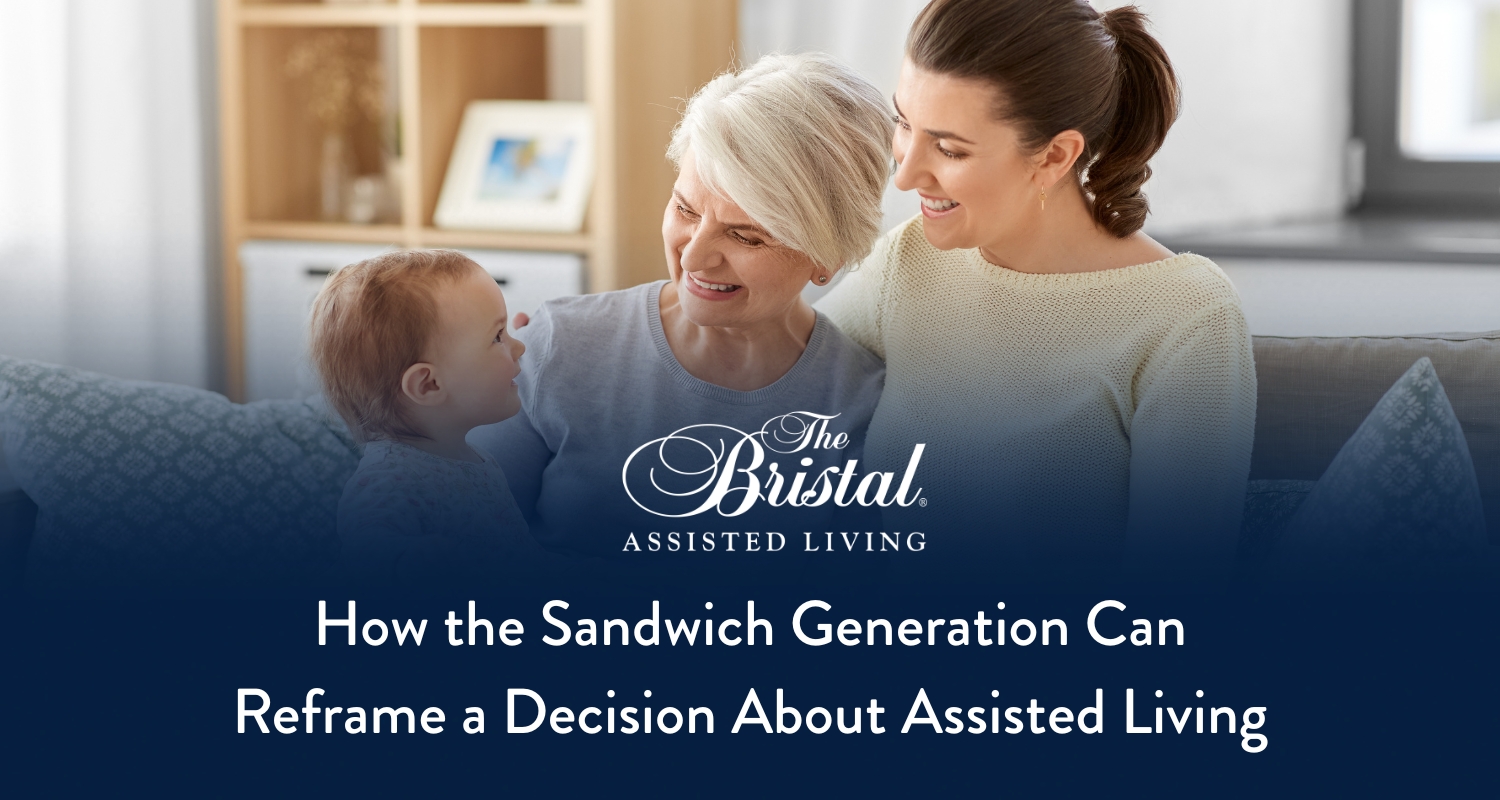For adults caught between the needs of aging parents and growing children, the pressure to be a perfect caregiver can feel relentless. This group -- often referred to as the sandwich generation -- is navigating an emotional balancing act, trying to put the needs of everyone else first while trying to care for themselves as well.
If you're considering assisted living for your parent or parents, and guilt is weighing heavily on your heart, know this: you are not alone, and your feelings come from a place of love and responsibility.
But guilt does not have to guide your decisions.
The Weight of Guilt
Guilt takes many forms. Maybe you feel like you're not doing enough. Maybe you promised long ago you'd never 'put Mom in a home.' Perhaps you worry that moving your parent to assisted living means you've failed -- failed to repay the care they once gave you, failed to protect their independence, or failed to put their needs above your own.
It's important to realize that these feelings are valid and rooted deeply in compassion. You care for your parent's comfort, dignity, and happiness. That's why this decision feels so difficult.
It's also crucial to understand, however, that guilt isn't just an emotional burden you bear -- it can manifest physically as well. Research indicates that guilt is associated with physiological changes, including alterations in heart rate, respiration, and gastric activity. These changes suggest that long-term feelings of guilt can have tangible effects on your physical health, potentially leading to stress-related symptoms, increased risk of chronic diseases, and decreased well-being.
Reframing the Conversation
Instead of seeing assisted living as giving up or giving in, think about it as a way to give more. More safety. More support. More opportunity for your parent to thrive.
Assisted living has changed a lot in the past two decades, and many communities are designed to support autonomy and foster independence. Residents have access to wellness programs, chef-prepared meals, enriched programming, and the chance to make new social connections. The decision to move to assisted living shouldn't center on what could be lost, but instead center aspirationally on what could be gained.
Your own well-being also matters. When you're no longer consumed by caregiving responsibilities, you may find your relationship with your parent improves. You'll have time to focus on creating meaningful moments and redefine your parent-child relationship for the better. You'll also have more energy to focus on other aspects of your life, like your children, your marriage, your job, and your own well-being. That's not selfish, it's sustainable.
You Aren't Alone
Many individuals in the sandwich generation face the same turning point, and many carry the same guilt. Recognize that feeling guilty doesn't mean that you're making the wrong choice and that reframing that guilt can be transformative:
Ask yourself:
- Am I making this decision out of love?
- Will this choice support my parent's long-term safety, social life, and well-being?
- Will this help me preserve my role as their child, not just their nurse, chauffer, and aide?
If you answered Yes to the above, you are free to release your feelings of guilt. You're making a thoughtful, compassionate decision that honors everyone involved.
The Guilt May Not Fade Immediately
Guilt doesn't always end when the transition to living in an assisted living community is complete. It can creep in during visits or in quiet moments of reflection. It's an unproductive feeling that can actually hinder you and you're loved one from fully embracing the new, healthier dynamic you're working toward.
Let go of the idea that this decision means failure. You haven't failed. You have cared for them with every ounce of your strength, and now you're choosing a new kind of care that benefits you both. This is not the end of your caregiving journey. It's the next chapter. It's a fresh start.
Read on to learn more about how to talk to your parents about assisted living.
Do you have questions about how to discuss the transition to assisted living with someone in your life? Ready to explore your options for assisted living in New York or New Jersey? Wondering how to get started? Please contact The Bristal Assisted Living today.



